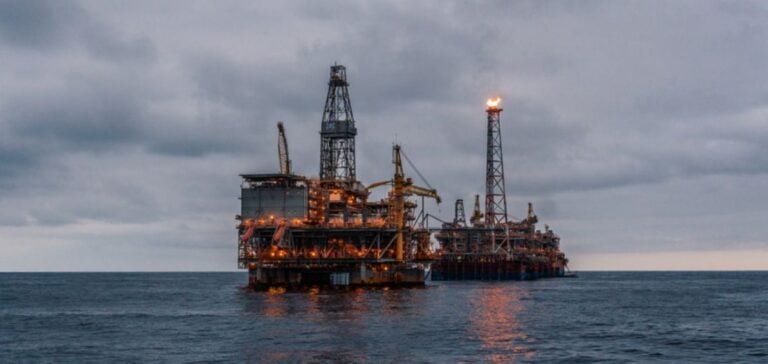The Lakach project, abandoned in 2016 after a $1.4 billion investment by Petróleos Mexicanos (Pemex), is back at the center of strategic discussions in the Mexican energy sector.
Seeking to reduce its dependence on gas imported from the USA, Pemex is reactivating this offshore field located 63 kilometers off the coast of Veracruz, with the aim of extracting nearly 1 trillion cubic feet (Tcf) of gas by 2041.
However, industry experts point to the considerable challenges associated with deepwater projects, and the lack of clear profitability for this field.
Major challenges for a modest deposit
Lakach, with estimated reserves of less than 1 Tcf, is considered a relatively modest project on a global scale.
Most offshore gas projects have much larger reserves, sometimes reaching up to 10 Tcf.
This small size calls into question the economic viability of Lakach as a stand-alone project.
According to Pedro Martinez of S&P Global Commodity Insights, the offshore context in Mexico is complex, due to a lack of infrastructure and a history of mixed results for Pemex in this area.
The business model chosen for Lakach is also criticized.
Rather than liquefying the gas for export to higher-priced markets, Pemex plans to transport it onshore for domestic use.
This could mean selling the gas at uncompetitive prices, nearly three times the cost of importing U.S. gas, according to analysis by Rodrigo Rosas of Wood Mackenzie.
This strategic choice could lead to subsidies that would weigh on the company’s finances.
The contractual model and financial risks
Pemex’s partnership with Grupo Carso to relaunch Lakach also raises questions.
This model is based on a service contract rather than an operating partnership, which transfers most of the financial risk to Pemex without offering solid production guarantees.
The initial agreement with New Fortress Energy, which was cancelled shortly after it was signed, testifies to the uncertainties surrounding this type of contract.
Miriam Grunstein of Brilliant Energy Consulting points out that this approach is similar to the business models used in the past, where lack of transparency and restrictive conditions favored a limited number of economic players.
This could hinder more efficient and diversified development opportunities for the Mexican gas sector.
Limited prospects for reducing dependence on imported gas
At peak production, Lakach could reach around 200 million cubic feet per day (MMcf/d), a marginal amount compared to Mexico’s daily natural gas consumption of over 9 billion cubic feet per day (Bcf/d).
The project could reduce dependence on US gas imports by just 2%, a minor impact given the operating costs and investment required.
Experts believe that alternatives, such as the development of field clusters, including Kunah and Piklis, located near Lakach, could offer better optimization of available resources.
However, these fields still require geological evaluation and substantial investment.
The economic outlook for deepwater natural gas remains uncertain, especially in a global context where lower-cost sources of gas are widely available.
Pemex’s current strategy for Lakach is likely to result in a loss-making project in the long term, highlighting the company’s persistent difficulties in balancing its energy ambitions with the economic realities of the market.






















